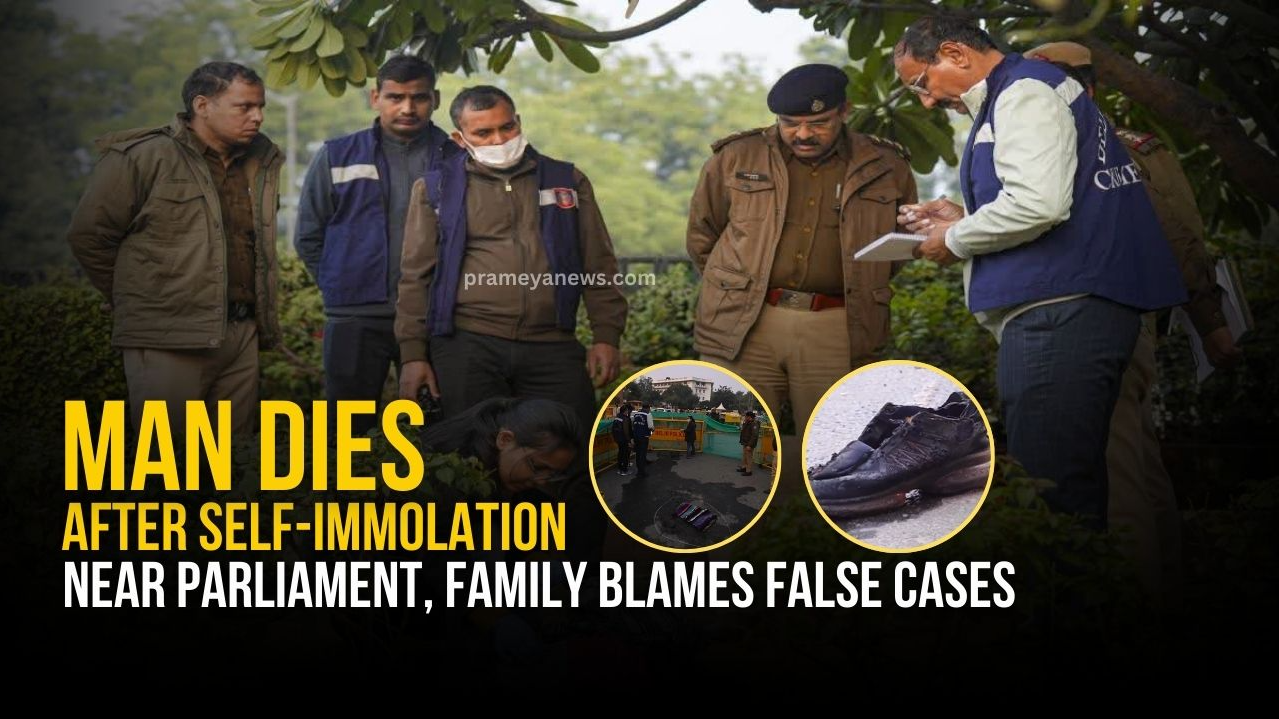

A Tragic end fuels questions about justice
A man's desperate act of self-immolation near the Parliament building in New Delhi has ended in tragedy, raising troubling questions about the pressures faced by individuals caught in the legal system. Jitendra, a resident of Baghpat, Uttar Pradesh, succumbed to his injuries on Friday after setting himself ablaze on Wednesday afternoon.2 The incident, reportedly linked to ongoing legal battles and alleged false cases, has cast a spotlight on the potential for despair and extreme measures when individuals feel trapped by the system.
The incident: A public act of desperation
On Wednesday, around 3:30 PM, near the Parliament building, Jitendra, a man in his early thirties, set himself on fire in a park in front of the high-security building before moving towards the main gate.3 Security personnel acted swiftly, extinguishing the flames and rushing him to the Ram Manohar Lohia Hospital. He had suffered severe burns, covering approximately 90% of his body.4 Despite medical efforts, he passed away on Friday.
The backstory: legal troubles and alleged harassment
Jitendra's desperate act appears to be linked to a series of legal cases filed against him in his hometown of Baghpat, Uttar Pradesh.5 According to police, three cases were registered against him in 2021, 2022, and 2024, based on complaints from a group of people.6 The exact nature of these cases and the family's dispute remains unclear and is under investigation by the UP Police. Jitendra's family, who rushed to Delhi after the incident, claims these cases were false and had put immense pressure on him. They allege that the Uttar Pradesh police had registered these cases without proper investigation, leading to their son's distress. The deceased had reportedly lied to his family about his reason for travelling to Delhi, claiming he was seeking legal assistance at the Supreme Court regarding the cases against him.
Jitendra's journey: From college dropout to a tragic end
Jitendra, aged between 30 and 35, was a college dropout who, according to his father, harbored aspirations of becoming a lawyer. He reportedly extracted petrol from his motorcycle in Baghpat before traveling to Delhi by train, suggesting premeditation in his actions. No suicide note was found at the scene, leaving his precise motives open to interpretation but strongly suggesting a link to his ongoing legal troubles.
The investigation: Unraveling the truth
Delhi Police are investigating the incident, working to understand the full context of Jitendra's actions. They have confirmed that Jitendra suffered 90% burns and was in a very critical condition before passing away.7 The focus now shifts to the Uttar Pradesh police to determine the validity of the cases filed against Jitendra and whether any procedural lapses or harassment occurred. The police had earlier told the media that the local police, railway police and some civilians had managed to quickly extinguish the flames and the victim was sent to the hospital.8 Preliminary findings suggested that the incident may be linked to a personal enmity in Baghpat.
Jitendra's tragic death is more than just a news headline; it's a stark reminder of the human cost of a flawed or overburdened justice system. While the specifics of his case are still under investigation, the incident raises critical questions about the potential for misuse of the legal system, the psychological toll of prolonged legal battles, and the desperation that can drive individuals to extreme measures. This tragedy underscores the urgent need for a more transparent, efficient, and empathetic justice system that protects the vulnerable and ensures fair treatment for all. It also highlights the importance of mental health support for individuals facing legal challenges. The incident serves as a somber call to action for authorities to investigate not only the circumstances surrounding Jitendra's death but also the broader systemic issues that may have contributed to his despair. The case serves as a stark reminder that justice delayed or denied can have devastating consequences, and that the system must be held accountable for its impact on the lives of ordinary citizens. The broader implications of this incident extend beyond one man's tragic end; it speaks to the need for systemic reforms to ensure that the pursuit of justice does not become a source of further suffering.